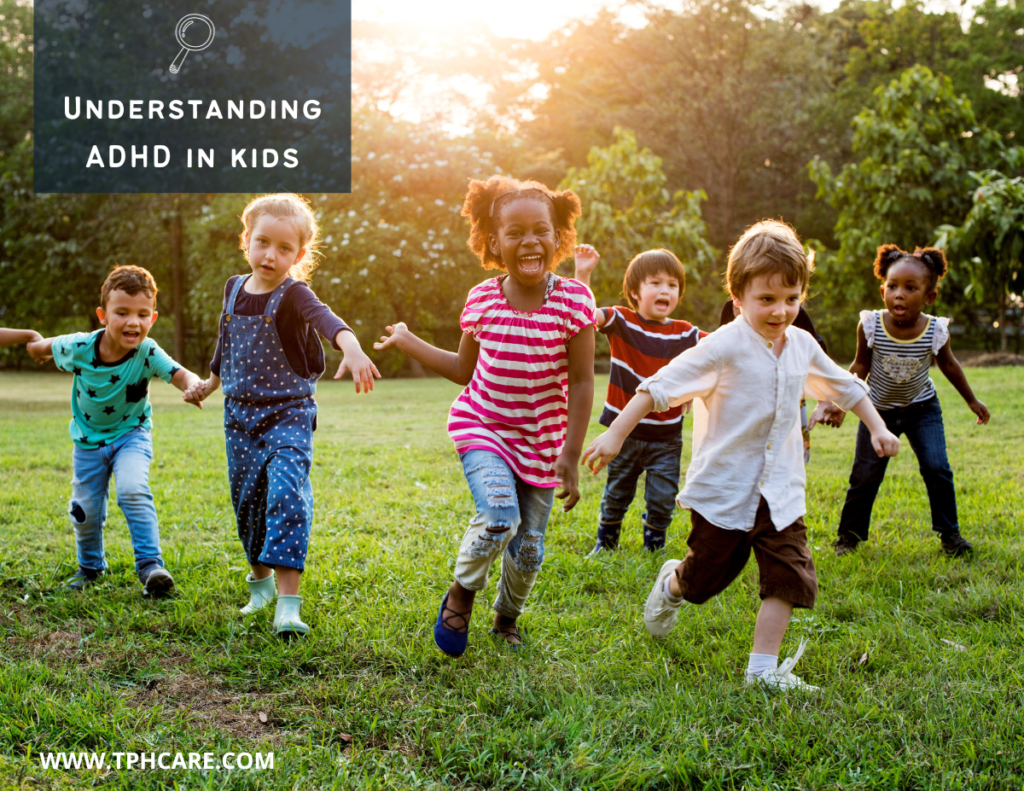
When it comes to the health and well-being of our children, understanding the nuances of various conditions is essential. Among these, Attention-Deficit/Hyperactivity Disorder (ADHD) is one that often garners much attention and concern. As parents, it’s natural to have questions about ADHD. In this post, we aim to shed some light on this condition and assure you that Total Pediatric Healthcare is here to support you and your child every step of the way.
What is ADHD?
ADHD is a neurodevelopmental disorder that affects both children and adults. It is characterized by a persistent pattern of inattention, hyperactivity, and impulsivity that interferes with daily life or development.
Symptoms of ADHD in Kids
Inattention: Children may have difficulty sustaining attention in tasks or play activities. They may avoid or be reluctant to engage in tasks that require sustained mental effort.
Hyperactivity: Children may often fidget or tap their hands or feet, be unable to play or engage in activities quietly, or talk excessively.
Impulsivity: Kids with ADHD may have a hard time waiting their turn or may interrupt or intrude on others’ conversations or games.
It’s important to note that children, at times, can be inattentive, hyperactive, or impulsive. It’s when these symptoms are consistent, extreme, and disruptive that they might indicate ADHD.
Causes and Risk Factors
The exact cause of ADHD remains unknown. However, research indicates that it may involve a combination of factors, including:
- Genetics
- Brain injuries or abnormalities
- Exposure to environmental toxins during pregnancy
- Low birth weight
- Alcohol or tobacco use during pregnancy
Diagnosis of ADHD
Diagnosing ADHD involves a comprehensive evaluation, including:
- A thorough medical history and physical examination
- Behavioral assessments, including teacher and parent rating scales
- Interviews or questionnaires for parents, caregivers, and teachers
- Observation of the child
- Neuropsychological testing
It’s important to work with a healthcare provider specializing in pediatric health to ensure an accurate diagnosis.
Treatment Options
ADHD treatment is multi-faceted and may include:
Medication: Stimulant and non-stimulant medications can help manage ADHD symptoms.
Behavioral Therapy: This can help children develop social skills and coping mechanisms.
Parent Training: Parents can learn strategies to help manage their child’s behavior.
School Support: An Individualized Education Program (IEP) or a 504 Plan can help support a child’s learning needs in the school setting.
Supporting Your Child
Supporting a child with ADHD goes beyond medical and therapeutic interventions. It’s about understanding, patience, and adaptability. Consistent routines, clear expectations, and positive reinforcement can go a long way in helping your child manage their symptoms.
Our Pediatric Clinic’s Commitment
At Total Pediatric Healthcare, we understand the intricacies of pediatric health and the unique challenges that conditions like ADHD can present. That’s why we’re committed to guiding families every step of the way—from screening and diagnosis to treatment and beyond. Our team of dedicated pediatricians and healthcare professionals works diligently to ensure that every child receives personalized care tailored to their needs.
Should you have any concerns about your child’s behavior or if you suspect they might have ADHD, we’re here to help. Your child’s well-being is our top priority. Trust us to be your partners in their journey to optimal health.

